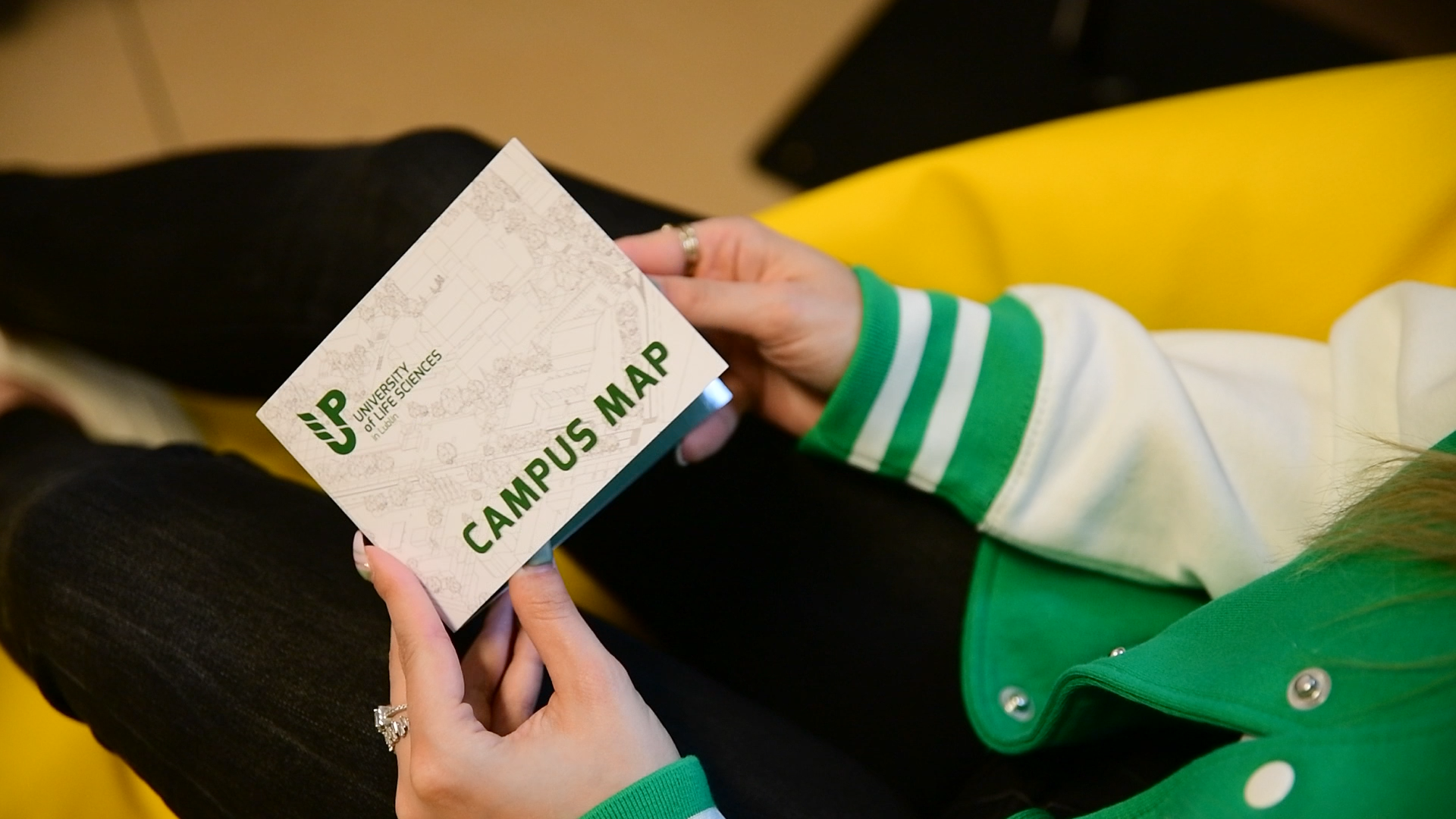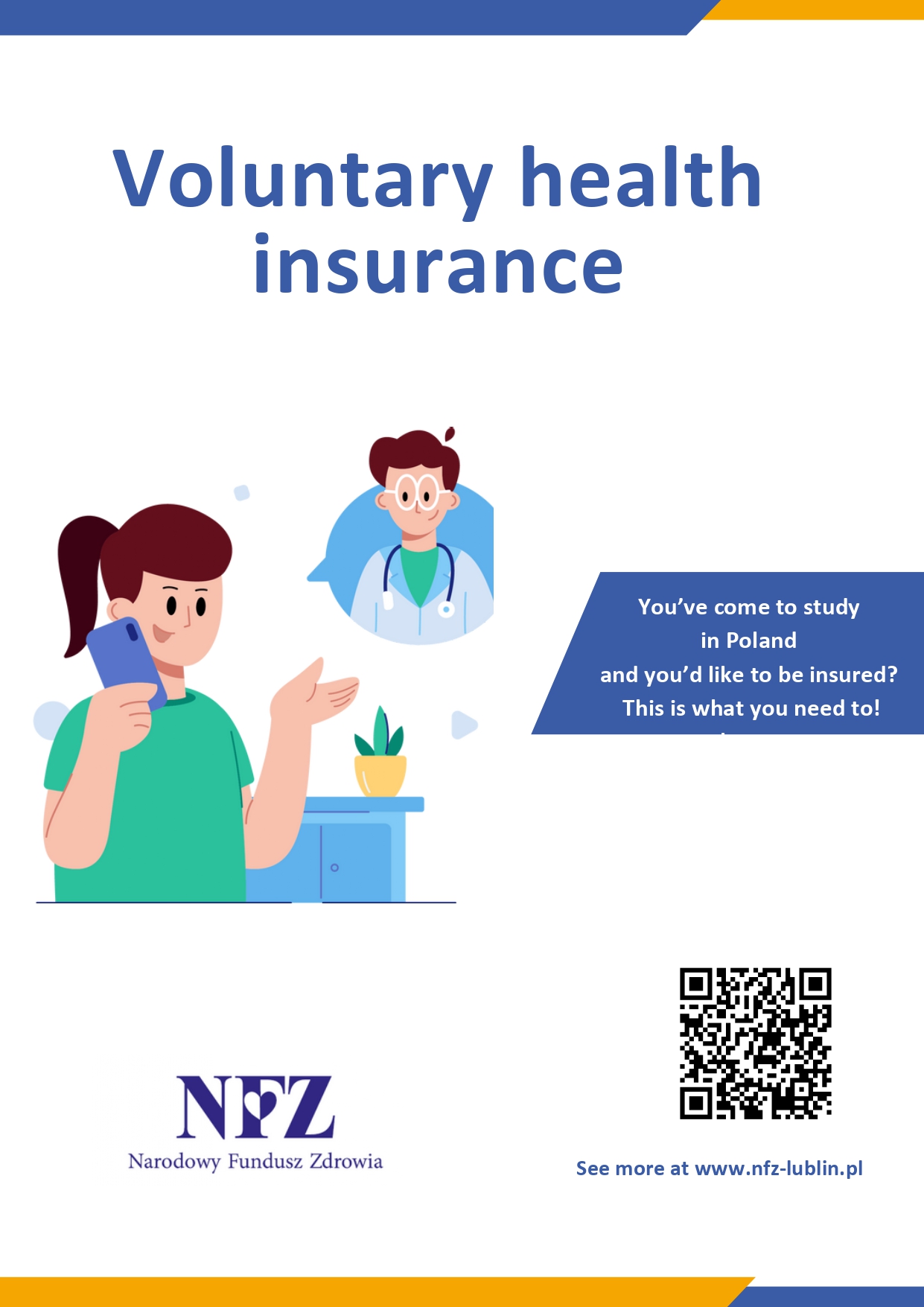
Lublin
Lublin, called the capital of eastern Poland, is the largest and most rapidly developing city on the right side of the Vistula River. As the capital of Lublin Voivodeship, it serves as the administrative, economic and cultural centre of the region. Lublin’s rich, seven-century-long history and its location in a multicultural melting pot are its special qualities. It is an enchanted place attracting visitors with its unique atmosphere, rich architecture and numerous historical monuments.
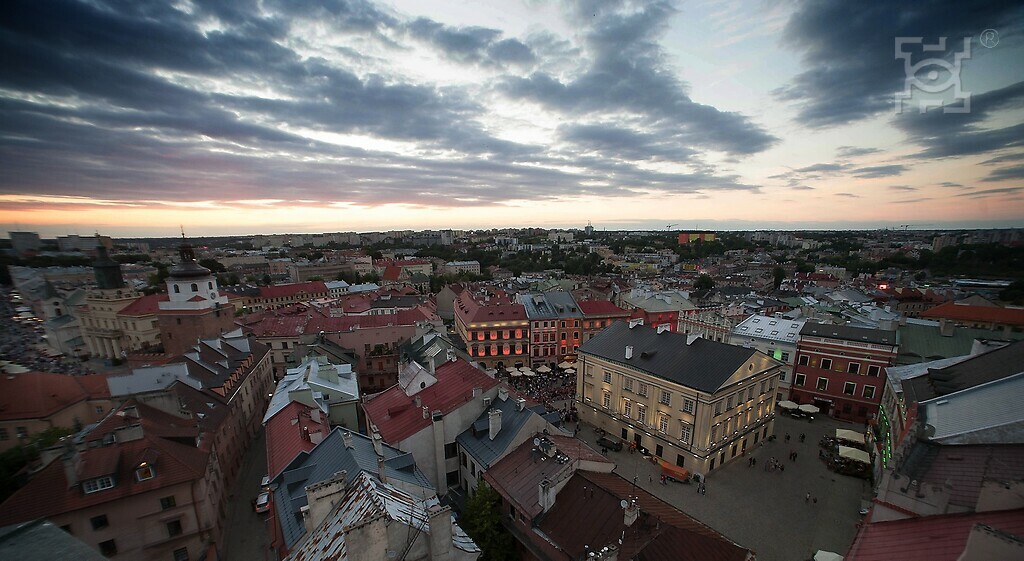
Lublin is a city of inspiration, where an awareness of history inspires the future. Renowned international artistic events, theatre, music and contemporary art festivals take place here. The high level of the cultural offer is also provided by theatres, galleries and student clubs operating in the city. Organised concerts, performances, happenings, festivals or exhibitions enliven the streets of Lublin. Among the best-known cultural events are the Carnaval Sztuk-Mistrzów, Other Sounds Festival, Night of Culture, Jagiellonian Fair, Central European Theatre Festival ‘Neighbours’, Theatre Confrontations Festival or the European Taste Festival.
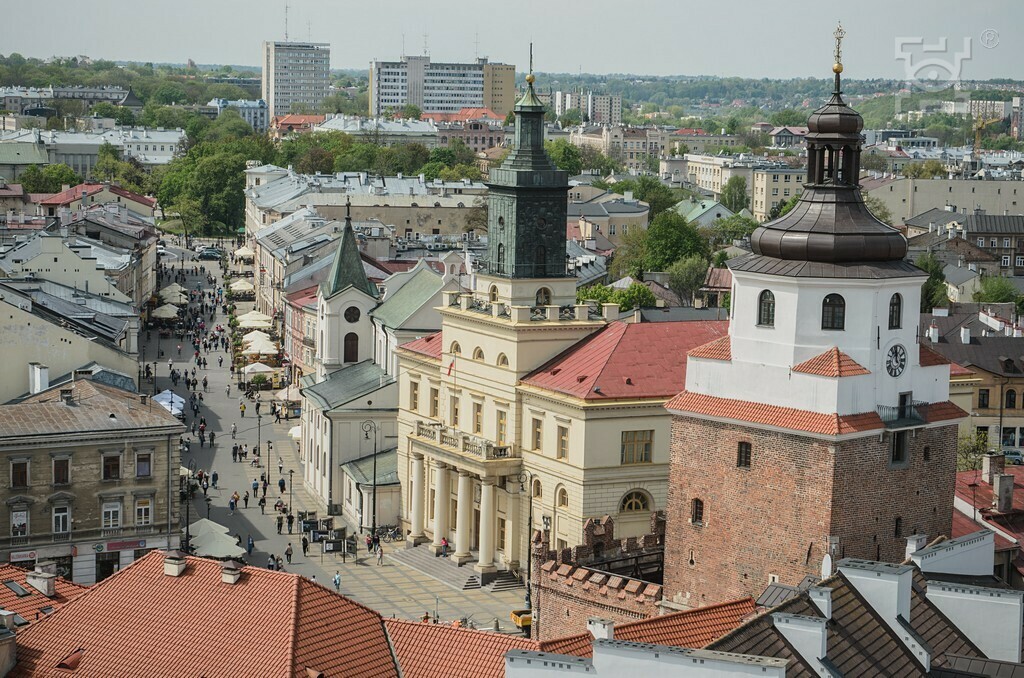
Lublin is one of the cities with the highest investment dynamics. The opening of Lublin Airport, the construction of the ring road together with access roads or the municipal public transport system modernisation all contribute significantly to the development of infrastructure and the creation of a friendly environment for investment, thus strengthening Lublin’s position on the map of Poland and Europe.
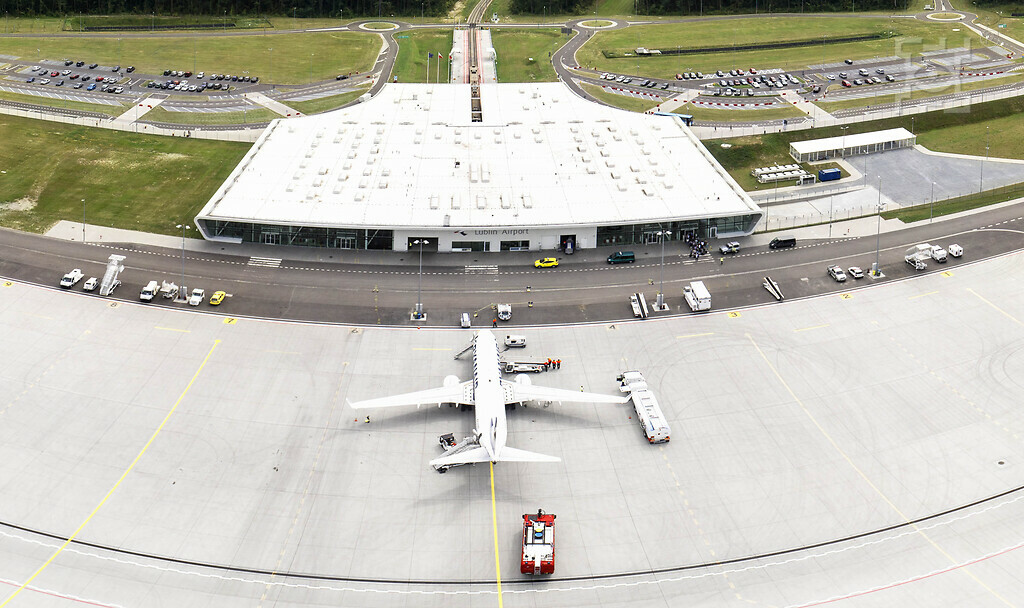
Lublin is one of the most important and dynamic academic centres in Poland. It encourages education with its wide range of fields of study, excellent academic staff and activities to support students, e.g. through scholarships and awards. More than 70,000 students, not only from Poland, study at the renowned public universities and prestigious non-public higher education institutions.

Lublin is a Gate of the East, a showcase for Poland in its dealings with the Eastern Partnership countries. This is a result not only of its geopolitical location, but also of the city’s historical heritage. An integrating Europe has moved far to the East, restoring to Lublin its natural role as a link between East and West. Lublin is the undisputed leader, among Polish cities, in cooperation with eastern partners. It involves both official contacts at the level of authorities and offices and direct relations between many institutions and companies. The activities carried out are related to various areas of life, such as: initiatives for the development of civil society, city management, projects in the field of culture and science.

Photos: Lublin City Office
-
1. How can I apply?
Please check admission process details here: https://up.lublin.pl/en/admission/how-to-apply/
-
2. What are the admission requirements?
Please check all the details here: https://up.lublin.pl/en/admission/how-to-apply/#stepbystep
-
3. Do I have to take an entrance exam?
There are no entrance exams for studies in English.
-
4. When does an admission process start?
The main admission starts on 1 March 2024.
-
5. What is the deadline for the application?
The admissions deadline is September 2024.
-
6. Are your programmes available on a part-time basis?
ULSL offers only full-time programmes.
-
7. Can I study at ULSL on a distance-learning basis?
We do not offer online programmes.
-
8. I am not an EU/EEA citizen and will need a visa to Poland. However, I do not currently have a passport. Can I apply to the ULSL?
Yes, you can. You will, however, need a valid passport to apply for a visa if you are admitted.
-
9. Are there admission quotas for certain countries or regions?
No, ULSL admits students based on a combination of academic merit, professional experience and demonstrated preparation for their intended degree programmes.
-
1. What can I study at the University of Life Sciences in Lublin?
You may choose one of 9 programmes we offer:
- Veterinary Medicine – long-cycle programme (DVM)
- Agriculture – bachelor’s degree
- Equine Management and Care – bachelor’s degree
- Management and Production Engineering – bachelor’s degree
- Animal Sciences and Dairy Production – master’s degree
- Food Technology and Human Nutrition – master’s degree
- Green Urban Planning – master’s degree
- Plant Protection and Phytosanitary Control – master’s degree
- Management and Production Engineering – master’s degree
-
2. Does my name and date of birth need to match on all documents?
Yes. In order for your application to be processed please ensure that your name and date of birth are the same on every document you provide. If you believe that your name does not match both your application and other documents, please email admission@up.lublin.pl with accurate information.
-
3. Are there Scholarships or Financial Aid available for International Students?
Because University of Life Sciences is a public institution, international students are generally ineligible for need and merit based financial aid. Our tuition has remained frozen at current rates for the past four years.
-
4. How much does it cost to study at the University of Life Sciences in Lublin?
Please find more information about tuition fees here:
Veterinary Medicine programme: https://up.lublin.pl/en/admission/master-programmes/
Bachelor’s programmes: https://up.lublin.pl/en/admission/bachelor-programmes/
Master’s programmes: https://up.lublin.pl/en/admission/master-programmes/
-
5. I would like to study at a different University for one or two semesters. How does that work?
Various programmes allow students to complete a study period at a Polish or foreign University without any additional administrative costs. For more information, please visit: https://up.lublin.pl/en/student/erasmus/erasmus-student/
A definitive transfer to a different university requires you to submit your application to the other university by the appropriate deadline.
-
1. Who can live in University Dormitories?
Students who are registered for classes at the University of Life Sciences may live in University Dormitories.
-
2. What should I bring?
Each foreign student (who starts studying in English) should take all personal/other items at thier own discretion. Remember that in winter the temperature in Poland can drop to -10-20 degrees Celsius, so you will need warm winter clothes.
-
3. Can I have a refrigerator in my room?
Each room has a refrigerator that meets our safety and capacity requirements for this item.
-
4. What are the requirements for appliances in my room?
Small electrical appliances, such as coffee makers and multicookers, are allowed in student rooms as long as the heating element is completely enclosed.
-
5. Do I have to live in University Dormitory?
No one is required to live in University Dormitories at any time, but we encourage first-year students to reside in dormitories, because it will help them get used to the new schedule and environment faster.
-
6. Am I required to find a roommate before I move in?
Students who do not have an accepted roommate request will be assigned with a roommate, unless they indicated that they wanted to live in a single room.
-
7. How safe are the University Dormitories?
University Dormitories strive to provide a safe environment. However, as with any community with a large number of people, it’s best to take precautions such as locking doors and making sure your personal items are covered by insurance policy.
-
8. Can I leave things in my room over breaks?
Yes, leaving belongings in your room is allowed for all breaks except summer.
-
9. Can I stay in my room over breaks?
Students are able to remain in their assigned space at no additional charge for all breaks (fall, Christmas, winter and spring break).
-
10. Can I smoke in my room?
No. All University Dormitories are non-smoking. Please note E-cigarettes or any other device used to vaporize or atomize a nicotine based or non-nicotine based liquid solution to the smoking materials are not permitted in University Dormitories.
-
11. Where can I do laundry?
There are laundry rooms in each Dormitory. All washers in University Dormitories are front-load high-efficiency machines that maximize load size and conserve water and energy use.
-
12. Do I need to clean my room?
Your room is your responsibility. You are required to clean your room before check-out at the end of the academic year. Mops, brooms, and vacuum cleaners are available at each Dormitory. We encourage students to clean their rooms on a regular basis.
-
13. Is there anywhere I can cook?
Each Dormitory has 2 kitchens on each floor available for residents to do limited amounts of cooking. There are also single and double rooms with a kitchenette.
-
14. Can I get a single room?
The number of single rooms is very limited, and students currently living in University Dormitories have first priority for assignment to these rooms.
-
15. Who can I contact if I have a specific question regarding my room and/or roommate?
Please contact Student Dormitories Office for questions regarding your room and/or roommates.
Magdalena Hetman, MSc – Student Dormitories Coordinator
-
16. Are pets allowed?
No pets are allowed in University Dormitories.
-
17. Do I need to purchase property insurance?
The University does not assume responsibility for the loss of money or valuables, damage to property, or injuries on the premises. If you are not covered under your parent/guardian’s insurance policy, we strongly recommend you make arrangements for insurance protection against such losses.
-
18. Do I need to have my own pots, pans and other cooking utensils?
No, you will receive a set of kitchen utensils when you move into the dormitory.
|
|
Prices |
Cebion Dormitory, |
Eskulap Dormitory |
Broadway |
|
1. |
Monthly fee for one place in a double room |
PLN 650 (approx. EUR 150) |
PLN 960 (approx. EUR 220) |
PLN 570 (approx. EUR 130) |
|
2. |
Monthly fee for a double room that accommodates one person |
PLN 975 (approx. EUR 222) |
PLN 1500 (approx. EUR 340) |
PLN 860 (approx. EUR 195) |
|
3. |
Monthly fee for a single room |
PLN 770 (approx. EUR 175) |
PLN 1300 (approx. EUR 295) |
PLN 650 (approx. EUR 150) |
|
4. |
Monthly fee for a single room of increased size or consisting of two rooms |
PLN 840 (approx. EUR 190) |
PLN 1400 (approx. EUR 320) |
– |
|
5. |
Fee per night for a double room |
PLN 110 (approx. EUR 25) |
PLN 160 (approx. EUR 37) |
PLN 100 (approx. EUR 23) |
|
6. |
Fee per night for a single room |
PLN 70 (approx. EUR 16) |
PLN 120 (approx. EUR 27) |
PLN 60 (approx. EUR 14) |
Lublin
Lublin, called the capital of eastern Poland, is the largest and most rapidly developing city on the right side of the Vistula River. As the capital of Lublin Voivodeship, it serves as the administrative, economic and cultural centre of the region. Lublin’s rich, seven-century-long history and its location in a multicultural melting pot are its special qualities. It is an enchanted place attracting visitors with its unique atmosphere, rich architecture and numerous historical monuments.

Lublin is a city of inspiration, where an awareness of history inspires the future. Renowned international artistic events, theatre, music and contemporary art festivals take place here. The high level of the cultural offer is also provided by theatres, galleries and student clubs operating in the city. Organised concerts, performances, happenings, festivals or exhibitions enliven the streets of Lublin. Among the best-known cultural events are the Carnaval Sztuk-Mistrzów, Other Sounds Festival, Night of Culture, Jagiellonian Fair, Central European Theatre Festival ‘Neighbours’, Theatre Confrontations Festival or the European Taste Festival.

Lublin is one of the cities with the highest investment dynamics. The opening of Lublin Airport, the construction of the ring road together with access roads or the municipal public transport system modernisation all contribute significantly to the development of infrastructure and the creation of a friendly environment for investment, thus strengthening Lublin’s position on the map of Poland and Europe.

Lublin is one of the most important and dynamic academic centres in Poland. It encourages education with its wide range of fields of study, excellent academic staff and activities to support students, e.g. through scholarships and awards. More than 70,000 students, not only from Poland, study at the renowned public universities and prestigious non-public higher education institutions.

Lublin is a Gate of the East, a showcase for Poland in its dealings with the Eastern Partnership countries. This is a result not only of its geopolitical location, but also of the city’s historical heritage. An integrating Europe has moved far to the East, restoring to Lublin its natural role as a link between East and West. Lublin is the undisputed leader, among Polish cities, in cooperation with eastern partners. It involves both official contacts at the level of authorities and offices and direct relations between many institutions and companies. The activities carried out are related to various areas of life, such as: initiatives for the development of civil society, city management, projects in the field of culture and science.

Photos: Lublin City Office
University of Life Sciences in Lublin
13 Akademicka Street, 20-950 Lublin
VATIN 712 010 37 75
REGON no. 000001896
ePUAP: /UP-Lublin/SkrytkaESP



